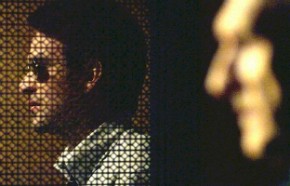Blind vigilante

Religion is rarely featured in stories about superheroes. Clark Kent’s parents, for example, were Methodists. This was his Jewish creators’ way of communicating that Superman was a trustworthy middle American. More typically superheroes have no religion; they are quasi-religious saviors. This makes the hero of the new Netflix series Daredevil unusual.
Like House of Cards and Orange Is the New Black, Daredevil (one of four planned Marvel superhero series) establishes Netflix as a major entertainment production company. Lawyer Matt Murdock is also superhero Daredevil (played by Charlie Cox). Daredevil may actually believe in a God bigger than himself. He most certainly believes in the church. Early in the 13-episode series Daredevil is in a confessional booth seeking penance not for what he’s done, but for what he’s about to do. Before the priest can call after him, “It doesn’t work that way,” he’s off, a blind vigilante with heightened senses battling for justice.
In the series, we learn that Daredevil lost his sight in a childhood accident. But his other senses are intensified. He can hear conversations blocks away, can sense in a person’s heartbeat whether he’s lying, and can leap across buildings and defeat legions of bad guys with all varieties of martial arts. He laments his loss of sight—“There’s not a day where I don’t wish I could see the blue sky”—but his powers serve him well. When the villain’s money man tries to hire Murdock’s law firm, his partner Foggy Nelson (Elden Henson) wants to take the money despite the client’s shady reputation. “You wouldn’t care if you could see the zeroes on this check,” Nelson says. “Maybe you would if you couldn’t,” Murdock replies.




